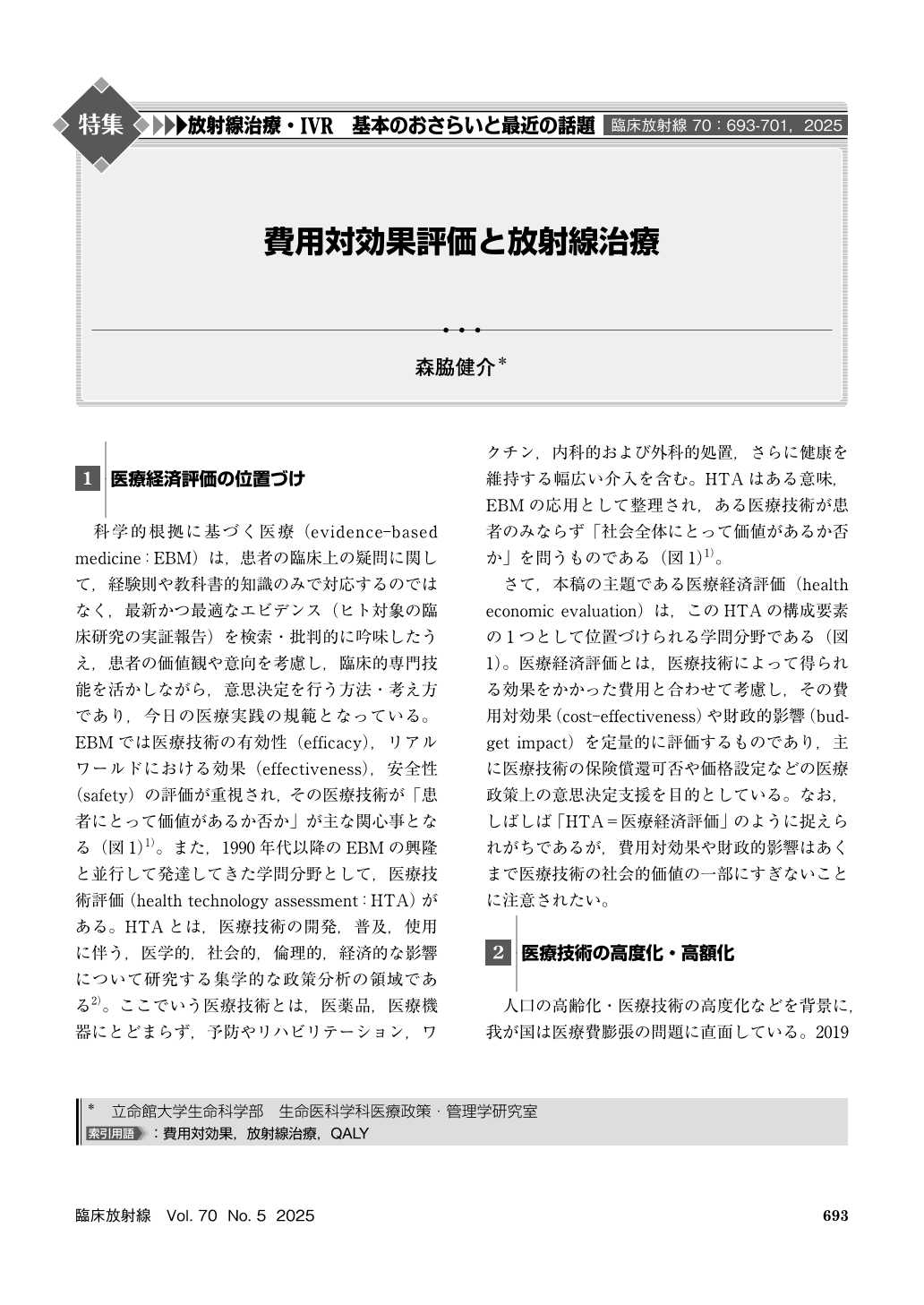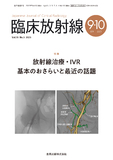Japanese
English
- 有料閲覧
- Abstract 文献概要
- 1ページ目 Look Inside
- 参考文献 Reference
科学的根拠に基づく医療(evidence-based medicine:EBM)は,患者の臨床上の疑問に関して,経験則や教科書的知識のみで対応するのではなく,最新かつ最適なエビデンス(ヒト対象の臨床研究の実証報告)を検索・批判的に吟味したうえ,患者の価値観や意向を考慮し,臨床的専門技能を活かしながら,意思決定を行う方法・考え方であり,今日の医療実践の規範となっている。EBMでは医療技術の有効性(efficacy),リアルワールドにおける効果(effectiveness),安全性(safety)の評価が重視され,その医療技術が「患者にとって価値があるか否か」が主な関心事となる(図1)1)。また,1990年代以降のEBMの興隆と並行して発達してきた学問分野として,医療技術評価(health technology assessment:HTA)がある。HTAとは,医療技術の開発,普及,使用に伴う,医学的,社会的,倫理的,経済的な影響について研究する集学的な政策分析の領域である2)。ここでいう医療技術とは,医薬品,医療機器にとどまらず,予防やリハビリテーション,ワクチン,内科的および外科的処置,さらに健康を維持する幅広い介入を含む。HTAはある意味,EBMの応用として整理され,ある医療技術が患者のみならず「社会全体にとって価値があるか否か」を問うものである(図1)1)。
There is an increasing need to consider not only the effectiveness of medical care but also its cost-effectiveness in clinical practice and medical policy decision-making. Cost-effectiveness analysis is conducted through simulations combining mathematical models and clinical trials. With the start of the cost-effectiveness evaluation system in Japan, cost-effectiveness analysis conducted from the standpoint of public healthcare has become important. In addition, cost-effectiveness evidence is becoming increasingly important from the viewpoint of clinical decision making. In such an analysis, collaboration with clinical experts is considered to be of utmost importance from the perspective of reflecting the real world practice in Japan.

Copyright © 2025, KANEHARA SHUPPAN Co.LTD. All rights reserved.


